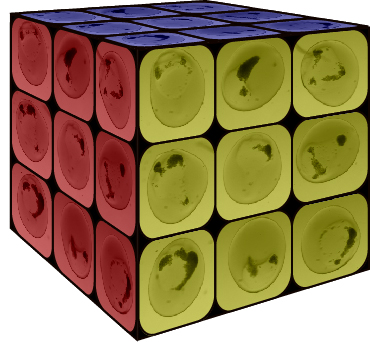Félicitations à Fabien Duveau pour ERC Consolidator eGRIDE
The project eGRIDE led by Fabien Duveau in the team “Genetic complexity of living systems” has been selected for funding by the European Research Council (ERC).

Living systems are the product of evolution in a dynamically changing world; they endlessly adapt to new challenges imposed by their environment. Yet, our understanding of evolutionary mechanisms involved in adaptation to dynamic environments is very sparse. Even though gene regulation is well-known to endow cells with the ability to adjust their phenotype according to environmental fluctuations, we know little about genetic changes that fuel regulatory evolution or about the benefits and costs of regulatory changes.
The project eGRIDE builds on genomic advances to determine how the evolution of gene regulation depends on 1) mutational effects – “what can happen?”, and 2) the selective advantage of regulatory changes in dynamic environments – “who can survive?”. These fundamental questions will be addressed at the transcriptomic scale by combining innovative experimental and computational approaches in a powerful model organism: the yeast Saccharomyces cerevisiae.
Using a novel method for high-throughput RNA-seq developed by Nena Martin (microcolony RNA-seq) and the HTRfit package developed by Arnaud Duvermy for analyzing transcriptomic data from multi-factorial experimental designs with many levels, we will determine how random mutations potentiate or constrain regulatory evolution and we will identify genetic variants altering gene regulation. By competing random mutants and performing functional assays under diverse regimes of selection, we will determine when and for which genes the evolution of expression regulation is beneficial.
This project will advance our understanding of the genetic mechanisms underlying regulatory differences and of their adaptive value in dynamic environments, providing an empirical foundation for improving predictive models of regulatory evolution.

